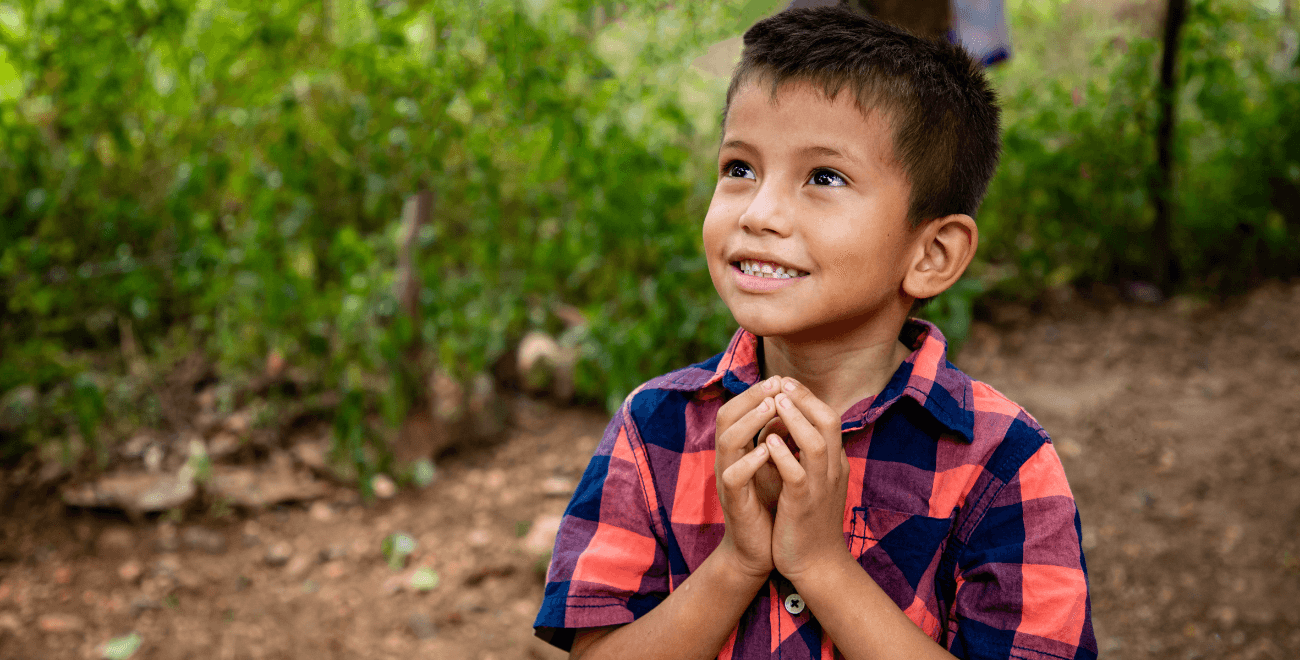Discover more
The Truth About Child Marriage… And How it Can be Stopped
There are still millions of child brides around the world. But the church can help end child marriage for good.
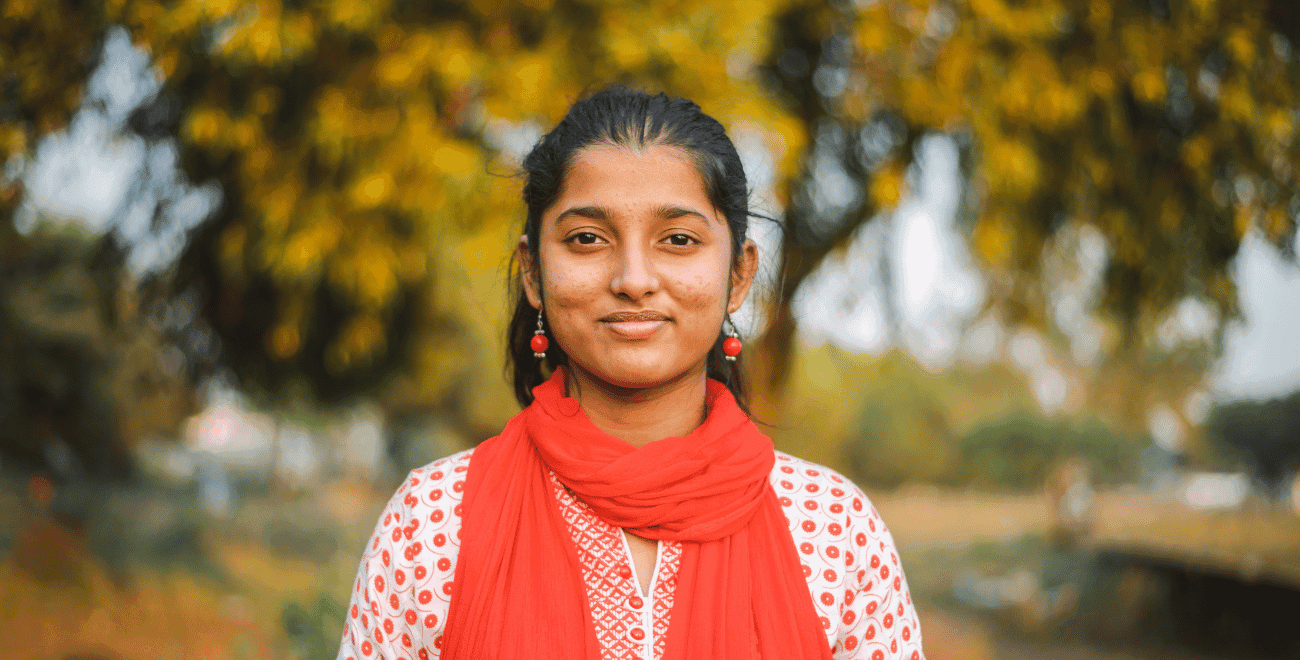
Childhood Lost: The Global Crisis of Child Marriage
Child marriage is an injustice on a global scale. Every year, 12 million girls around the world become child brides.
Child marriage is caused by the desperation of poverty and entrenched gender inequalities. It’s a violation of human rights, which has a devastating impact on girls’ physical, emotional and economic welfare. It steals their childhoods and stifles their futures.
God calls his followers to ‘act justly, to love mercy’ as we walk humbly with him. Although the situation is bleak, we’re called to stand up for girl’s rights. Local churches around the world – like those partnering with Compassion – are already making a difference, reaching out with the love of Jesus and to campaign for justice and inequality.
Below, we look at the causes and impact of child marriage, we hear directly from women who’ve been personally affected, and we look at the ways we can join together to bring an end to child marriage in our lifetime.
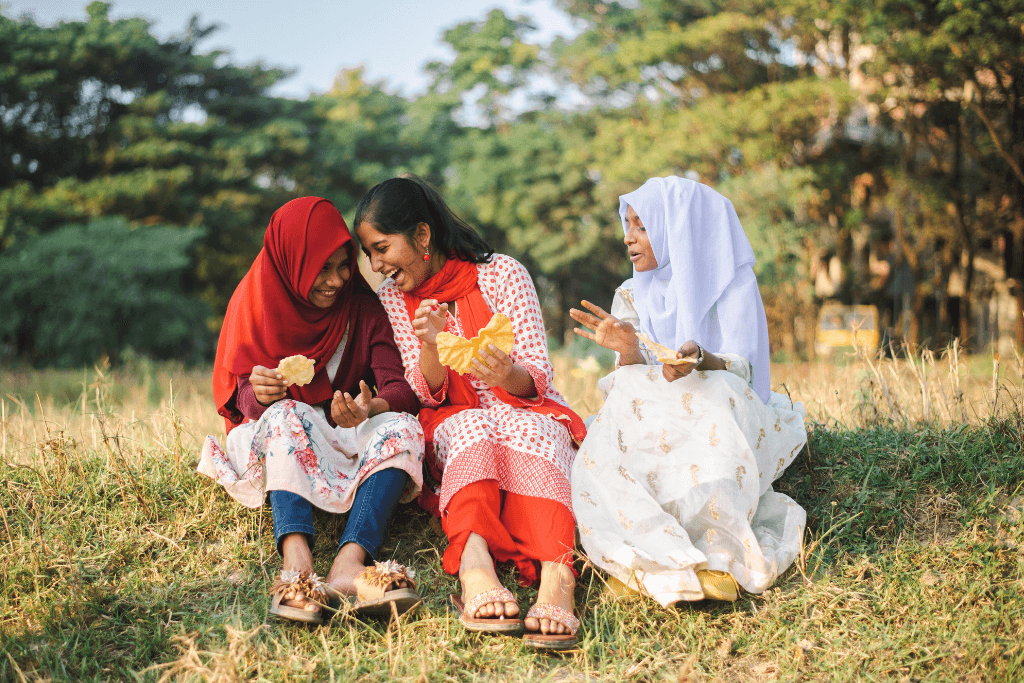
Tisha (14 years) participated in a staged wedding photoshoot to protest the harmful practice and lends her voice to raise awareness of the dangers of early marriage. From left: Munira, Tisha, and Jharna.
What is child marriage?
What are the consequences of child marriage?
What are the causes of child marriage?
Where does child marriage take place?
How can child marriage be stopped?
How can I help to end child marriage
What is Child Marriage?
UNICEF – the United Nations Children’s Fund – defines child marriage as ‘any formal marriage or informal union between a child under 18 years of age and an adult or another child.’
Despite being illegal in many countries, it remains widespread. Millions of children every year are forced into underage marriage. While it impacts all children, adolescent girls are disproportionately affected, often pressured into marrying older men.
What are the consequences of child marriage?
The consequences of child marriage are incredibly serious to both the girl and wider society.
Marrying in childhood denies girls the opportunity to develop their full potential. They’re not only robbed of their childhoods but often become socially isolated. Girls’ rights are ignored when they’re taken out of school, separated from family and friends, and forced to assume responsibilities they’re too young for.
Here are some of the negative impacts of child marriage:
1) Child brides experience more domestic violence
Girls married before their 18th birthday are more likely to have experienced gender-based abuse and violence from their families, husbands, and in-laws. Many families mistakenly believe that marriage will be ‘safer’ for their daughters, protecting them from physical and sexual violence. Sadly, the opposite is often the case with child brides being particularly vulnerable to abuse within their marriages.
There are also higher rates of violence towards women of all ages in regions where child marriage takes place. Ending child marriage is therefore a key part of tackling gender-based violence.
2) Child marriage causes lower education levels
Child marriage almost always results in the end of a girl’s education. Without the opportunity to learn and grow, these young women are denied the chance to develop the skills they need to lift themselves and their families out of poverty.
Poor quality schooling in low-income communities can decrease the perception of the value of education for families, preserving a cycle where child marriage is seen as the only realistic option.
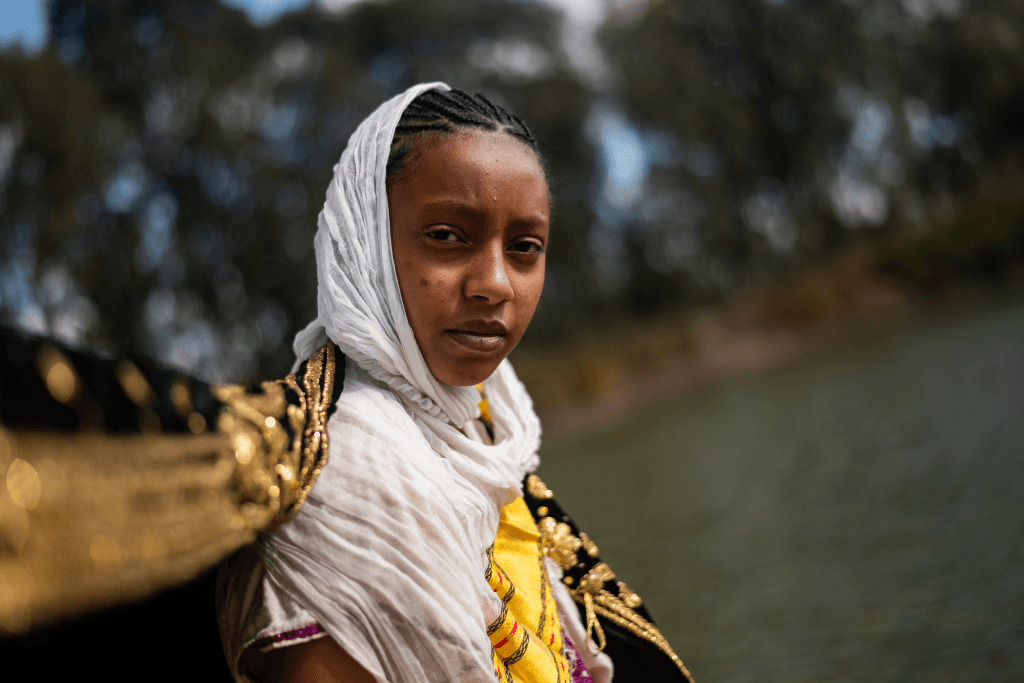
Mart participated in a staged wedding photoshoot to protest the harmful practice and lends her voice to raise awareness of the dangers of early marriage. “I hope to change the belief of parents who let their daughters pass through early marriage and to let the community know that girls shouldn’t marry young.” Mart, 13 years.
3) Child marriage traps people in poverty
The link between poverty and child marriage is undeniable. Families often feel forced to give their daughters into early marriages, because they cannot see any alternative. A lack of education prevents girls from securing well-paying jobs, and so a family can feel immense pressure that they have no alternative to early marriage.
4) Child marriage harms children’s health
Once married, the rights of the child are all too often ignored or forgotten. The pressure to become pregnant can have a devastating effect on girls whose bodies aren’t ready to give birth.
Child brides subjected to early pregnancy have increased risk of reproductive health problems such as delivery complications, low infant birth weight, malnutrition, and maternal and infant mortality.
Complications during pregnancy and childbirth are the leading cause of death for 15–19-year-old girls globally.
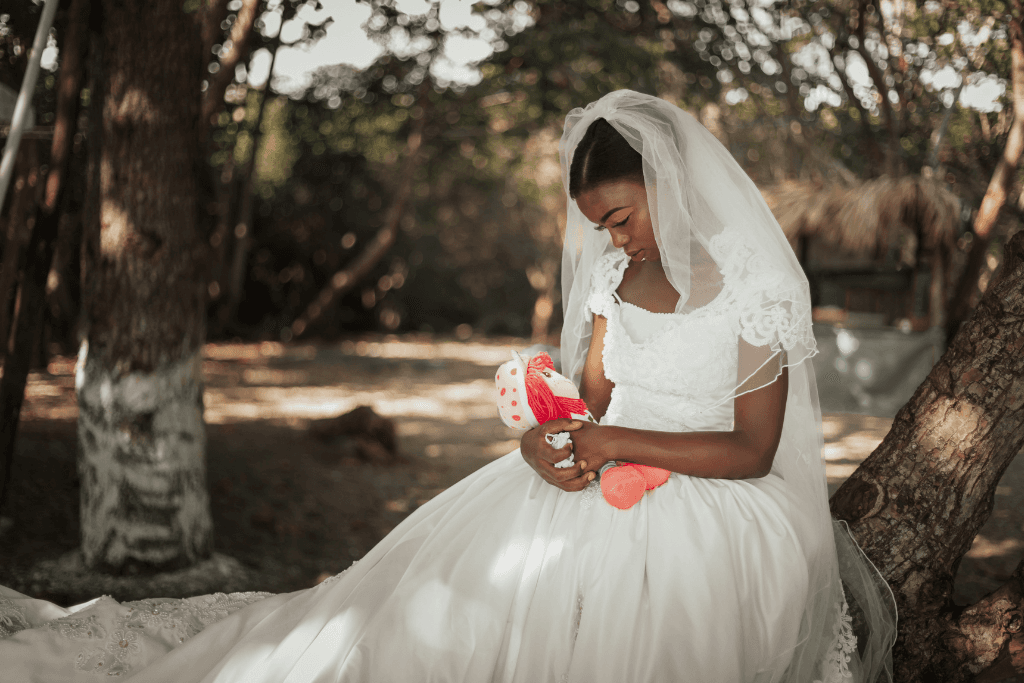
Lauri participated in a staged wedding photoshoot to protest the harmful practice and lends her voice to raise awareness of the dangers of early marriage. “A girl who gets married young must drop out of school, dedicate themselves to cleaning the house, and take care of a child and a man that she doesn’t understand. Instead of moving forward, it is like her life has frozen.” Lauri, 13 years, Dominican Republic
5) Child marriage stifles personal autonomy
Child marriage significantly decreases personal autonomy by forcing children into roles they aren’t ready for and haven’t chosen. Child brides lose their freedom and their ability to make decisions about their own lives. As well as interfering with young girls’ education and career opportunities, child marriage also restricts their social interactions – leaving children isolated and vulnerable.
Child brides often face controlling behaviour by spouses and in-laws, stifling their ability to develop independently and exercise personal choices, hindering their growth and self-determination.
6. Child marriage causes generational trauma
The children born into a household where a forced, child marriage has taken place are inevitably raised in an environment that has many challenges. The emotional hardship, often due to domestic violence cause trauma to be passed down through the generations.
One Compassion staff member says, ‘Children born into child marriages may face strained relationships with their fathers or grandparents, and harbour feelings of anger or resentment due to the circumstances of their parents’ relationship.
‘Equally, they may struggle with feelings of guilt when they seek or desire a positive relationship with their fathers or grandparents, when they know their mother was forced into marriage. Children can experience feelings of shame and stigma due to the circumstances of their birth, leading to self-identity issues and an increased risk of mental health difficulties.
‘The complex issue, and it’s important to extend the discussion beyond the very concerning issues surrounding pregnancy and reproductive health to also raise awareness about the psychological impact that can span generations… The work of organisations, such as Compassion, is so important for bringing hope and genuine means for breaking the cycle of child marriage as inevitable for children living in poverty.’
7. Child marriage is a violation of children’s rights
The United Nations describes child and forced marriage (CFM) as a human rights violation.
Protecting children’s rights is crucial to ensuring their safety, health, and development – and is fundamental to creating a just world for everyone.
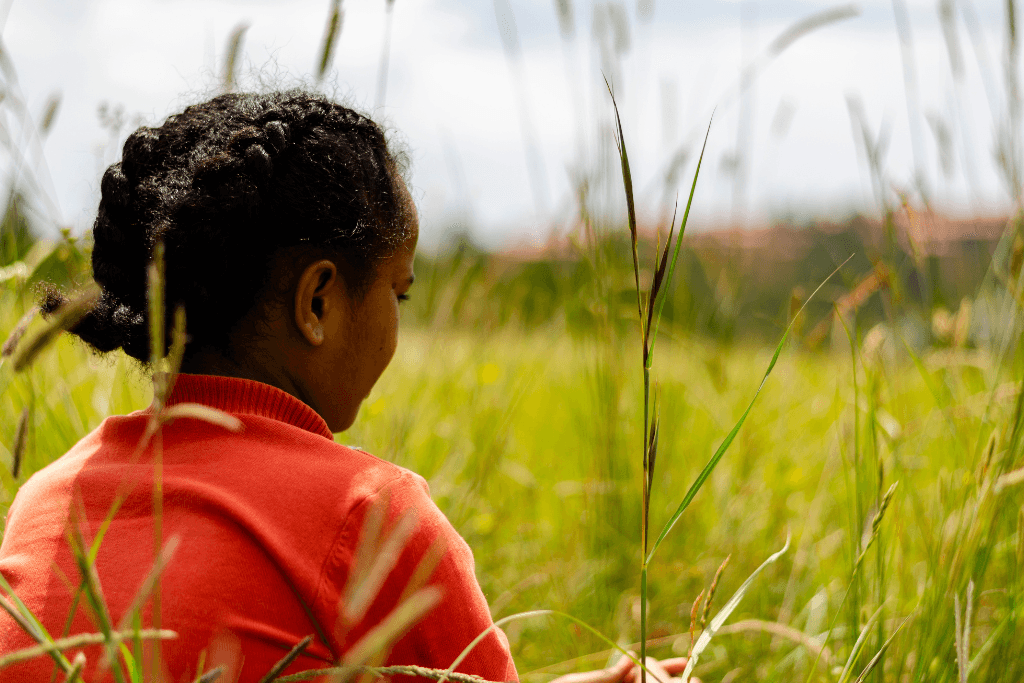
“ I prayed to God to deliver me from my abductor; to let me go back to my family; and for them not to harm me. I prayed every day and believed with all my heart,” said Yerosen, from Ethiopia.
Yerosen’s story: Saved from marriage at 12 years old
Yerosen from Ethiopia was a victim of the illegal practice of ‘marriage by abduction’, which is common in Ethiopia; 69% of child marriages begin this way. At just 12 years old, she was abducted and spent three months with her captor, a 35-year-old man.
“I prayed to God to deliver me from my abductor, to let me go back to my family, and for them not to harm me. I prayed every day and believed with all my heart,” she says.
Compassion Project Director, Abdi, led the search and rescue efforts. “Had it not been for Abdi, the church and the prayer of everyone who knows me, I would have been married by now,” Yerosen says. “I’m happy in my new home. I just can’t wait to grow up and prove to everyone that I survived for a reason—to fight for other girls like the church fought for me.”
Why does child marriage happen?
There are historic cultural norms and attitudes of gender inequality that mean child marriage is seen as acceptable in some regions. However, a significant driving force of child marriage is poverty. All the reasons above mean families living with the daily challenges of poverty can feel forced into marrying their daughters at the youngest legal age of marriage for their country.
Understanding the root causes of child marriage is crucial for addressing it effectively.
1. Child marriage happens because of poverty
This harmful practice is more likely to occur in rural and low-income areas where families are under immense pressure to survive, and where there is little to no access to health care or social support.
When a family is struggling with meeting their basic needs, such as having enough food, any child is an extra mouth to feed, and if a girl can get married, that can ease their burden. This, along with an exchange of dowry or bride, can be seen as vital support for a family facing extreme need.
What is a dowry or a bride price?
The bride’s family pays the groom’s family in money, goods or property. The younger a girl is, the lower the dowry payment. This encourages younger marriages. Dowries are most usual in South Asia.
A bride price, by contrast, is where the groom’s family pays the bride’s family with money, goods or property. Bride price is most usual in sub-Saharan Africa and is the reverse of a dowry.
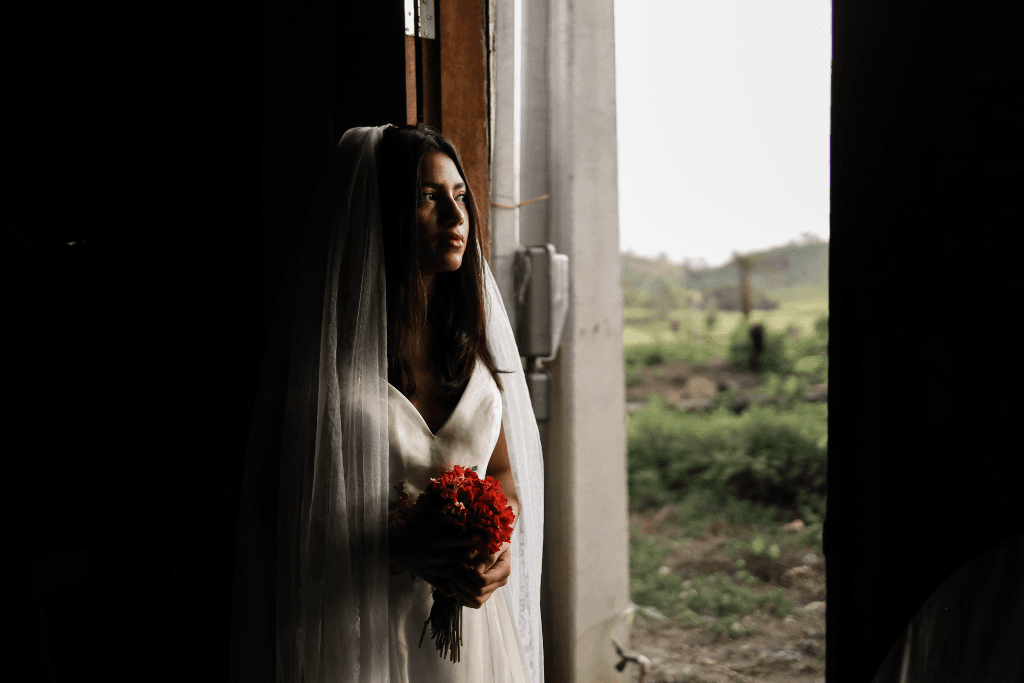

Yolane (13 years) participated in a staged wedding photoshoot to protest the harmful practice and lends her voice to raise awareness of the dangers of early marriage. – Brazil
2. Child marriage is caused by gender inequality
Child marriage is more common among girls than boys because of gender inequality. Around the world, in all sorts of context, girls’ and women’s rights are still overlooked, and their roles within families and society deemed inferior.
Tragically, female genital mutilation (FGM) and child marriage often go hand in hand. FGM is especially prevalent in sub-Saharan Africa, the Middle East and some parts of Asia. Nevertheless, it is also carried out in Europe, including the UK.
One of Compassion Kenya’s Highly Vulnerable Child Specialists, Brenda Etukei, explains the crucial and urgent need to support girls who are made vulnerable by the practice of FGM.
We also share this story of one father’s fight against FGM in his community, as he seeks to overturn entrenched social norms and stand up for the rights up girls.
3. Child marriage happens because of a lack of education
Research shows that girls are less likely to have to enter into a child marriage if they are in school. Education advances gender equality between young people, and vastly improves the future opportunities for girls, economically, emotionally and socially.
4. Child marriage happens because of limited healthcare access
Proper healthcare limits the occurrence of child marriage as it helps to inform families of the risks involved and empowers girls with more agency and understanding of their bodies.
5. Child marriage happens because laws are superseded by tradition
Many countries have laws that set the minimum age for marriage to protect children. However, sadly the upholding of these laws is inadequate and cultural, religious, and traditional practices take precedence.
Florence’s Story
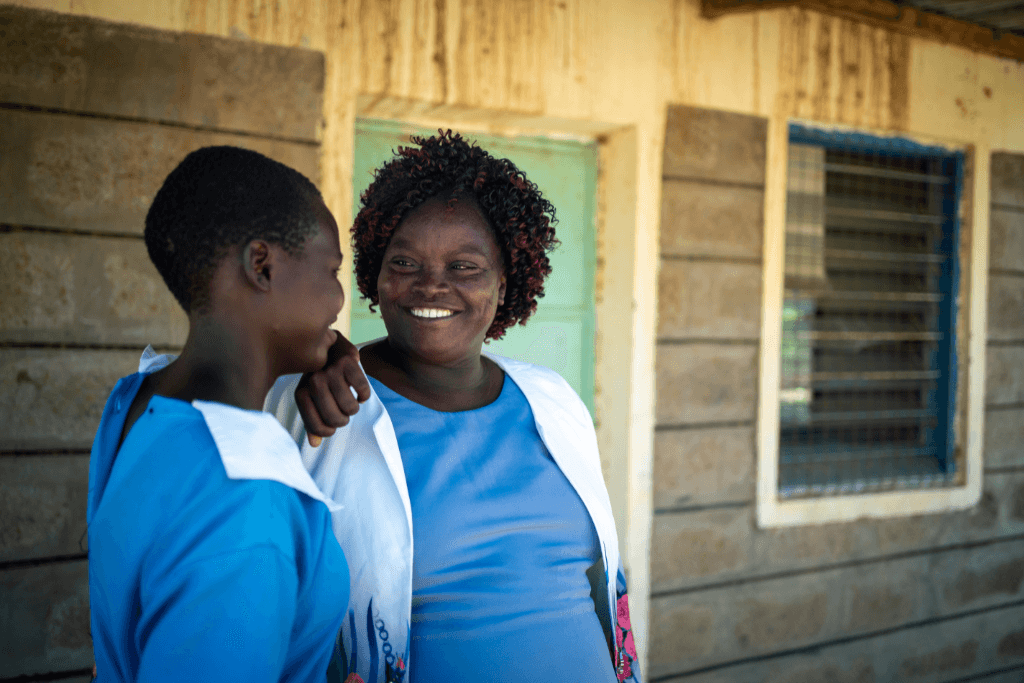
Having narrowly escaped a child marriage herself, Florence, from Kenya, now dedicates herself to protecting other children. Faith is the child on the left, Florence is the teacher on the right.
Florence’s lifelong campaign against child marriage and FGM began with her own narrow escape at just 12 years old.
“An old man from a neighbouring village had approached my family to arrange a marriage with me….He wanted me to be his fourth wife… I did not want to be married early because it would shatter all my dreams,” Florence says. “I ran away from home, living with well-wishers and teachers who supported my desire to complete my education and make something of myself.”
Out of a total of 38 girls in her father’s family, Florence was the only one to complete her education. She’s dedicated her life to protecting other children, often at great personal risk.
Where does child marriage take place?
Child brides can be found in every region worldwide, including England and Wales. Although most countries have minimum age requirements, and many stipulate parental consent, informal unions can provide a way around this. Recorded cases are likely to be only a fraction of the number of overall cases. As many unions take place in religious ceremonies that aren’t formalised, it’s difficult to capture the true number of married girls both here in the UK and around the world.
According to a UNICEF report, South Asia and sub-Saharan Africa have the highest rates of child marriage among girls. The highest overall number of child marriages in the world can be found in Niger. The highest rate of marriage amongst those under 15 years old is found in Bangladesh. Globally, South Asia accounts for 42% of all child brides with India making up one-third of the worldwide total.
Communities with high rates of poverty are more likely to have a higher number of child brides, and rural communities have a higher incidence of early marriage than urban communities. For example, in Ethiopia 75% of girls are married before their 18th birthday in Amhara (northern Ethiopia), whereas in the nation’s capital, Addis Ababa, the risk of child marriage is much lower, with 26% of girls being married before 18. This pattern is reflected across West and Central Africa, Latin America, and the Caribbean.
How can child marriages be stopped?
Child marriage can and must be stopped. The UN Sustainable Development Goals – a blueprint to create a better and more sustainable future – call for an end child marriage by 2030.
There are a number of clear, proven initiatives that can help end child marriage. Many of these are being carried out by Compassion’s church partners around the world.
Local churches can increase awareness by raising their voices and amplifying those of girls in communities where child marriage is most prevalent.
Compassion’s partners work closely with communities to raise awareness about the dangers of child marriage. We also serve and protect girls through child sponsorship in the following ways:
1) Child marriages can be stopped through better access to education
Girls that stay in school longer, get married later. Research by The World Bank shows that each year of secondary education a girl receives can reduce the likelihood of marrying before the age of 18 by five percentage points or more in many countries.
With the Compassion child sponsorship programme, a girl in poverty receives the fees and resources to go to school. Compassion sponsored children are 41.6% more likely to finish secondary school.
2) Child marriages can be stopped by encouraging gender equality and protecting girls from FGM
Compassion’s church driven project allows girls a safe space where staff work sensitively to educate families and communities about the dangers of FGM and protect girls at risk. The fact girls are treated with equal dignity and encouragement at projects, and receive the same support as boys, goes a long way to demonstrating equal value as made in the image of God.
Many Compassion graduates are inspiring change makers for their communities, showing what’s with support from the local church and Compassion.
3) Child marriages can be stopped by increasing child protection
Compassion’s staff are highly trained in safeguarding. In addition, there are dedicated safeguarding professionals at Compassion projects where staff, caregivers and sponsored children can seek advice and help. Staff know each child by name and care for them deeply. If a child is in danger or goes missing, Compassion’s staff are well placed to notice and act quickly.
Additionally, by providing educational resources, health and nutritional support, sponsorship relieves the financial strain on a girl’s family. By reducing the desperation that extreme poverty brings, families feel less pressured into giving their daughters in marriage.
4) Child marriages can be stopped by providing better opportunities for employment
UN Women states that One in every 10 women is living in extreme poverty (10.3 per cent) with little social protection and high food insecurity. Empowering women and girls for fulfilling and sustainable careers improves gender equality, women’s security and well-being, and also benefits economies.
When girls have the opportunity to develop towards skilled careers, child marriage ceases to be either necessary or appealing for families.
5) Child marriages can be stopped with community outreach
Encouragingly, UNICEF asserts that the global momentum to end child marriage has never been stronger.
Strong community relationships and practical socio-economic support enable families living in poverty to find better alternatives for their daughters than child marriage.
Compassion’s local church partners often run programmes of community training on the dangers and disadvantages of child marriage. These workshops can help to change attitudes about the harmful practice of child marriage and FGM. This approach echoes other organisations’ strategies for coming alongside families in community settings to promote the rights of girls, provide better education on reproductive health issues, and offer meaningful support for ways out of poverty.
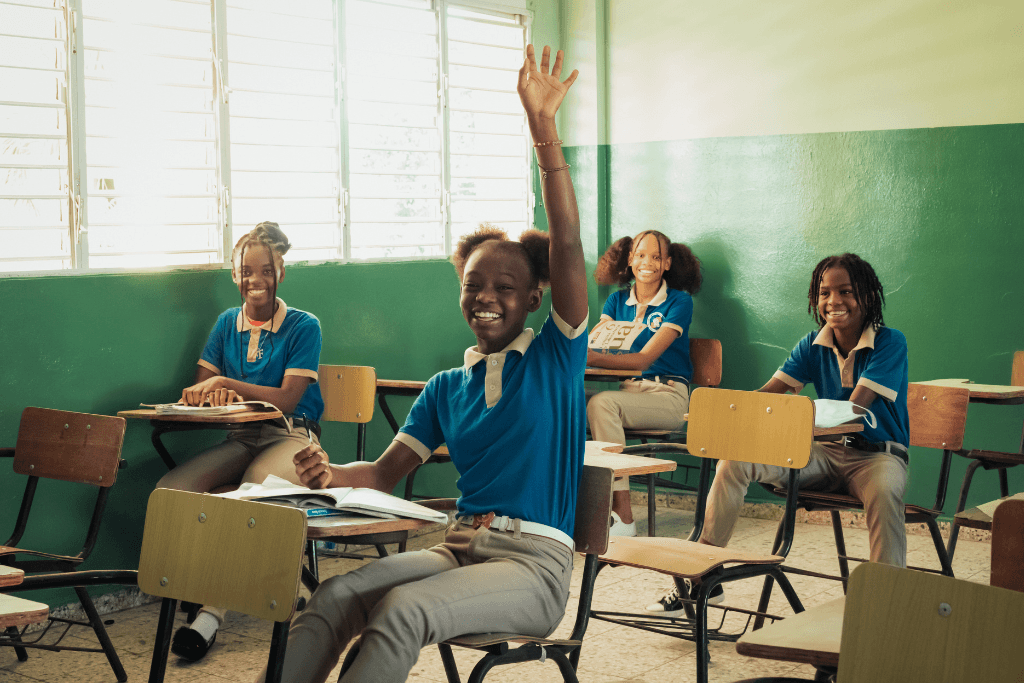
How You Can Help To Stop Child Marriage
Child sponsorship works. Compassion’s holistic child development programme provides incredible teams of dedicated individuals—tutors, mentors, doctors, social workers, caregivers—all investing in each girl’s life to equip her with the skills and self-belief she needs to overcome poverty for good.
Girls in Compassion’s programme receive love and support from Compassion’s local church staff. Thanks to the child sponsorship programme through Compassion UK, your monthly donation means vulnerable children living in poverty receive:
The child you sponsor will have a one-to-one relationship with you, with letters translated into their own language to bring real hope and positive change.
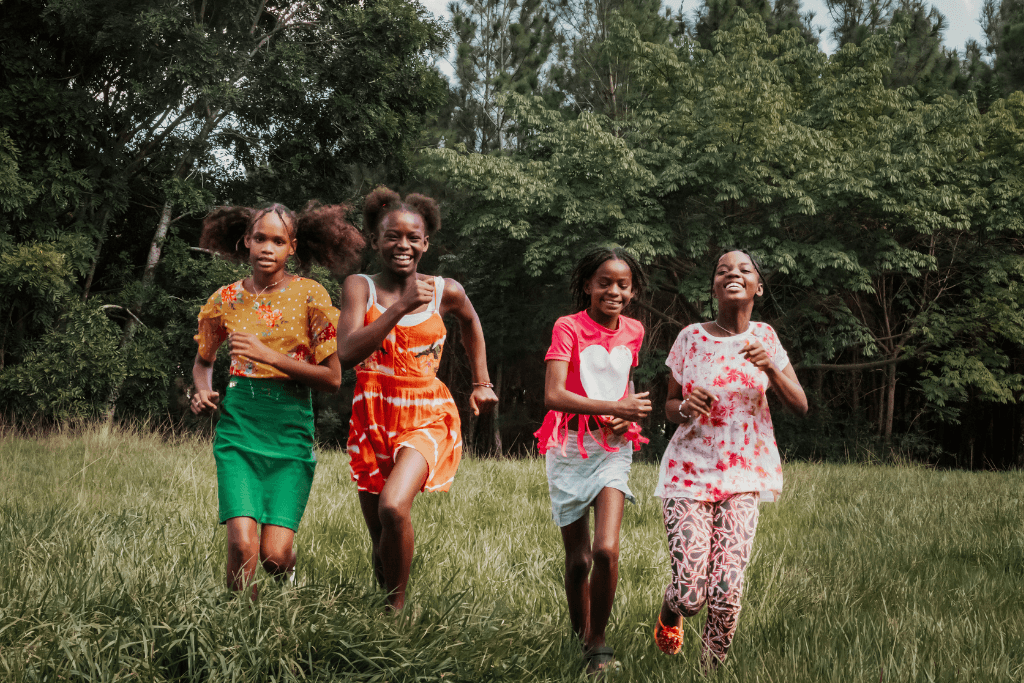
The director of the Compassion project where these girls participate, Elizabeth Sena, says, “We are intentionally increasing the conversations and counseling because the pandemic has increased child marriage in the community already. I’ve been intentional with the project’s participants because I want to see them succeed and prevent them from getting married too young.”
Pray for an end to child marriage
Prayer is powerful. We believe that we the church comes together in prayer, amazing things can happen.
To help you, your small group and your church to pray for an end to child marriage, we’ve created this useful guide.
Words by
Compassion UK
Share:
Share:
Pray with us
Join thousands of people praying to end poverty, take action through our appeals and activities, and be inspired by how God is changing lives.
Get a little Compassion in your inbox with our Prayer and Stories email.
Remember, you can unsubscribe at any time. Please see our Privacy Policy for more information.
